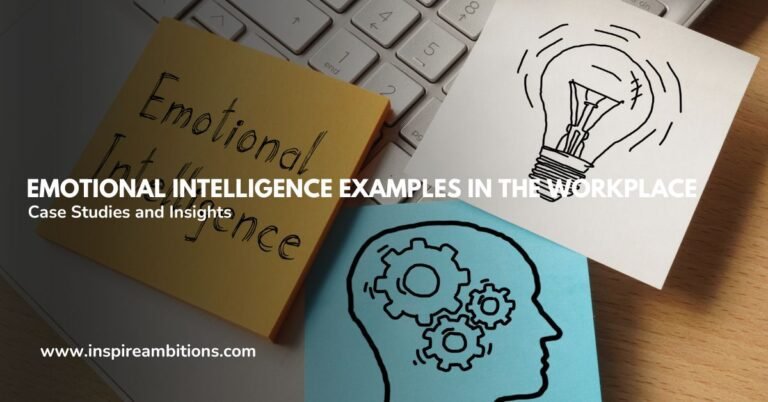How to Get Over a Bad Interview? – Moving Forward Professionally
Every professional knows that not every job interview will go smoothly. Maybe you stumbled over your answers, arrived late, or didn’t click with the interviewer.
Whatever the issue, a less-than-stellar interview doesn’t have to be the end of your career path. The most important thing is to learn from these experiences and move forward with renewed confidence.

A bad interview can feel like a setback, but it’s also an opportunity for growth. Analyzing your performance and taking actionable steps to improve can turn a negative situation into a valuable learning moment.
Whether refining your interview skills or developing a strategic follow-up, the key is taking control of your narrative and making intentional changes. With determination and the right approach, what feels like a stumbling block can become a stepping stone to success.
How to Get Over a Bad Interview? – Key Takeaways
- Learn from the interview experience to improve future performance.
- Refine interview techniques and develop a follow-up strategy.
- Move forward with confidence and a positive outlook on your career journey.
Understanding the Interview Process

As you navigate the aftermath of a less-than-ideal interview, you must have a solid grasp of the interview process. Understanding the common types of questions asked and the role of human resources can provide you with insights to better prepare for future opportunities.
Common Interview Questions
Interviews allow employers to gauge your experience and fit for the role. Expect to encounter questions such as:
- “Tell me about yourself” – A chance to summarize your professional background.
- “What’s your biggest weakness?” – An invitation to display self-awareness and commitment to improvement.
These questions uncover your qualifications and how effectively you can communicate and align with the company’s values.
Role of Human Resources
Human Resources plays a pivotal role in the interview process. Their responsibilities include:
- Developing Interview Questions: They design questions assessing technical abilities and soft skills.
- Candidate Experience: Ensuring the interview experience aligns with the company’s culture and values.
Remember, HR professionals are your allies. They facilitate the process and are there to help both you and the organization find the right match.
5 Key Steps to Objective Interview Reflection
“Every cloud has a silver lining,” and that’s certainly true even for interviews that didn’t go as planned. In the section below, you’ll discover how to analyze your interview performance effectively, transforming potential mistakes into valuable learning experiences.
Reflect on Mistakes
After your interview, pause and objectively review the experience. Make a bullet-point list of the moments you believe could have been handled better:
- Specific questions where your answers were lacking
- Instances where nervousness overshadowed your competence
- Moments of miscommunication or misunderstanding
Consider this part of your interview as a personal learning experience. Pinpointing these moments will help you understand the areas where you can improve. Remember, reflection is a tool for self-improvement, not self-criticism.
Seeking Feedback
It’s beneficial to seek feedback from the interviewer if the opportunity arises to gain additional perspective. Be polite and express your genuine intent to learn from the experience. You might ask:
- “Could you provide feedback on how I can improve for future interviews?”
- “Were there any specific areas you think I could work on?”
This information is precious as it comes directly from the source and can provide actionable insights that generic advice cannot. Whether positive or negative, feedback is a vital component of professional growth.
7 Essential Tips for Sharpening Your Interview Skills
“Practice makes perfect,” as the saying goes; nowhere is this more accurate than pursuing a job interview. This section will focus on actionable strategies to refine your interview aptitude, notably through relentless practice and mastering technical queries, which could be pivotal whether you’re in software engineering, data analysis, UX design, or product management.
Practice Makes Perfect
To excel in interviews, it’s crucial to practice your responses aloud. This includes common interview questions and scenarios specific to your field, such as presenting a product management case study or walking an interviewer through your UX design process. Utilize mock interviews with friends or mentors to simulate the environment and receive feedback.
- Role-play Different Scenarios: Tailor your practice to various industry positions, like software engineering or design.
- Record Yourself: Reviewing your performance can highlight areas for improvement, including your body language and articulation.
Mastering Technical Questions
When preparing for technical interviews, especially in fields like software engineering, data, or tech in general, delving into the nitty-gritty of your subject matter is critical. Here’s how to approach this:
- Understand the Basics: Ensure you have a solid grasp of foundational concepts in your education and job experience.
- Stay Updated: To demonstrate your industry relevance, keeping up-to-date with the latest trends and technologies is vital.
- Review Past Projects: Be ready to discuss real-world applications of your knowledge, explaining the technical aspects of past work and how it relates to the position you’re interviewing for.
Developing a Follow-Up Strategy
Even after a bad interview, you can influence your interviewer’s memory of you. Crafting an effective follow-up can be your opportunity to leave a positive, lasting impression.
Effective Thank-You Notes
Sending a thank-you note is more than just good manners; it’s a strategic move to reiterate your interest in the position. Immediately after the interview, compose a brief and tailored thank-you email. Make sure to:
- Express gratitude for the interviewer’s time.
- Highlight a specific topic from the interview to personalize your message.
- Mention an important skill or experience that makes you a good fit.
Remember, thank-you notes should be sent within 24 hours post-interview. For a more detailed guide, consider reading on how to write a thank-you note that leaves a lasting impression.
Damage Control Tactics
If you need to emp selectively to selectively control tactics collectively, a selective section of thank-selective ddreselective
- Acknowselective mistakes openly if it’s significant.
- Offering clarification or additional information to rectify it.
- Reaffirming your interest and fit for the role despite the hiccup.
Avoid dwelling on the negative; focus on positivity and enthusiasm for the role. If you need inspiration on recovering from interview mistakes, here’s how to conduct damage control effectively.
Moving Forward After a Bad Interview
Everybody has off days, and sometimes they happen during job interviews. It’s not the end of the world; it’s an opportunity to grow and prepare for the next opportunity. After a bad interview, you should focus on regaining your confidence and continuing your job search with renewed vigour.
Regaining Confidence
Feeling shaken after an interview that didn’t go well is natural. To regain your confidence, reflect on the interview to identify what went well and areas for improvement. Consider scheduling mock interviews or seek professional feedback to build your skills for future interviews. Remember, each interview is a chance to improve, no matter the outcome.
Continuing the Job Search
Don’t let one bad interview deter you. Keep your job search in motion, and consider broadening your scope to include remote work opportunities, which can offer flexibility and a variety of company benefits like 401(k) with matching. Maintain a regular schedule for your job search activities to keep momentum.
Additionally, always be ready to present yourself as a valuable candidate who can contribute to potential employers’ success.






